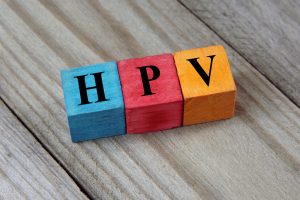Merck says bringing two plants online to feed demand for its blockbuster Gardasil remains a priority, despite industry’s unparalleled need for vaccine capacity driven by COVID-19 projects.
In January 2020, Merck & Co. (known as MSD outside North America) told delegates at the JP Morgan Conference in San Francisco that to keep up with the “incredible demand” for its human papillomavirus (HPV) vaccines Gardasil and Gardasil 9, two new production plants representing an investment of over $1.6 billion would come online by 2023.
At the time, news was coming in about a little-known virus in Wuhan, China. Eight months on, and the devastating effects of that novel coronavirus continue to shock the world, from a health, social and economic perspective.

Image: iStock/chrupka
The biopharma industry has raised its game in tackling the virus, with numerous therapies and vaccines reaching late-stage trials in an unprecedented time scale. Merck itself has invested resources and energy into several COVID-19 projects, including two potential viral vector vaccine and a nucleotide antiviral.
But as the development of such candidates targeting a global population move swiftly towards their endpoints, the challenge has moved on to ensuring enough manufacturing space and materials are available to serve the demand.
Already there is talk of commandeering capacity away from less-critical programs, whether at third-party manufacturers or inhouse. And Regeneron, as an example, has freed up capacity from its New York antibody manufacturing site to support its COVID-19 programs.
With that context, Merck chief medical officer Mike Nally told investors at the virtual Cantor Fitzgerald Global Healthcare Conference this week that Gardasil remains a key priority for the firm, and COVID-19 has not – and will not – impact both current production and future capacity.
“[The two new facilities] are progressing well. They have not been interrupted by COVID. It’s a clear company priority, and we think that capacity will come online in the 2023 timeframe.”
The global birth cohort
The expansion projects – both announced last year – are a $1 billion investment at its Rockingham County, Virginia plant and a $650 million facility at Merck’s Maurice R. Hilleman Center for Vaccine Manufacturing in Durham, North Carolina.
Once online, they should be able to produce the shortfall of a predicted 200 million doses management says.
“The opportunity with Gardasil is truly remarkable, right?” Nally asked investors. “HPV is largely contracted through sexual contacts and it was seen as kind of a taboo vaccine in some parts of the world. As the data has matured and as people have started to see the real-world impact of broad-scale vaccination programs, people recognized that Gardasil is an anti-cancer vaccine. And it has the potential with Gardasil 9 to protect against 90% of the HPV types that cause diseases like cervical cancer.”
The recent FDA approval of Gardasil for neck and head cancers further represents a shift in the public sentiment, he continued.
“As such, we’re seeing huge uptake around the world, where we basically migrated from a Gardasil 4 approach to Gardasil 9 to gender-neutral programs. And when we look at the total aggregate cohort that’s eligible for Gardasil, we’re likely around 5% penetration of the eligible population.
“So what we did when we chose to expand our capacity is we really wanted to have capacity to cover the global birth cohort. If you think about the number of births every year, they’re somewhere in the order of $125 million globally. If you assume basically an 80% vaccine coverage rate, you want around 200 million doses to protect that portion of the population. And that’s kind of the ballpark that we’ve been looking at.”
